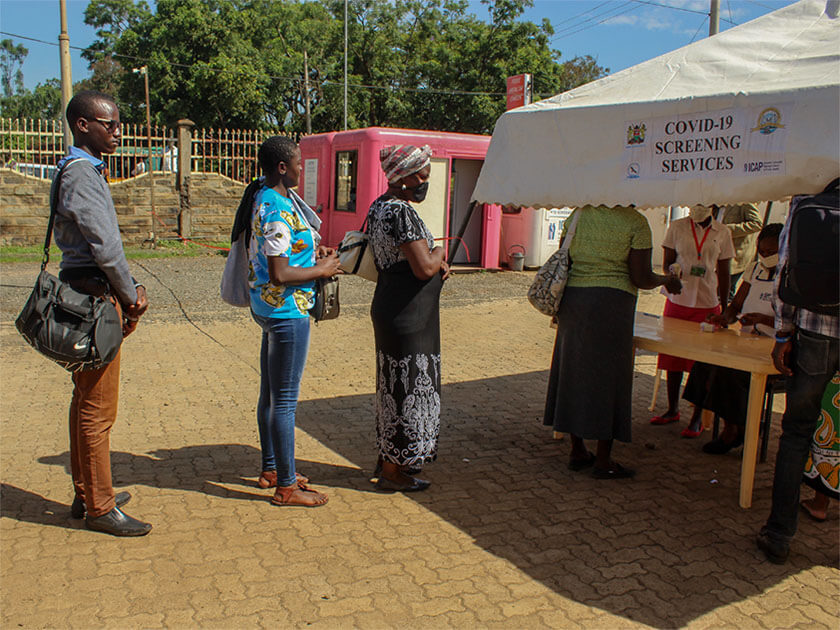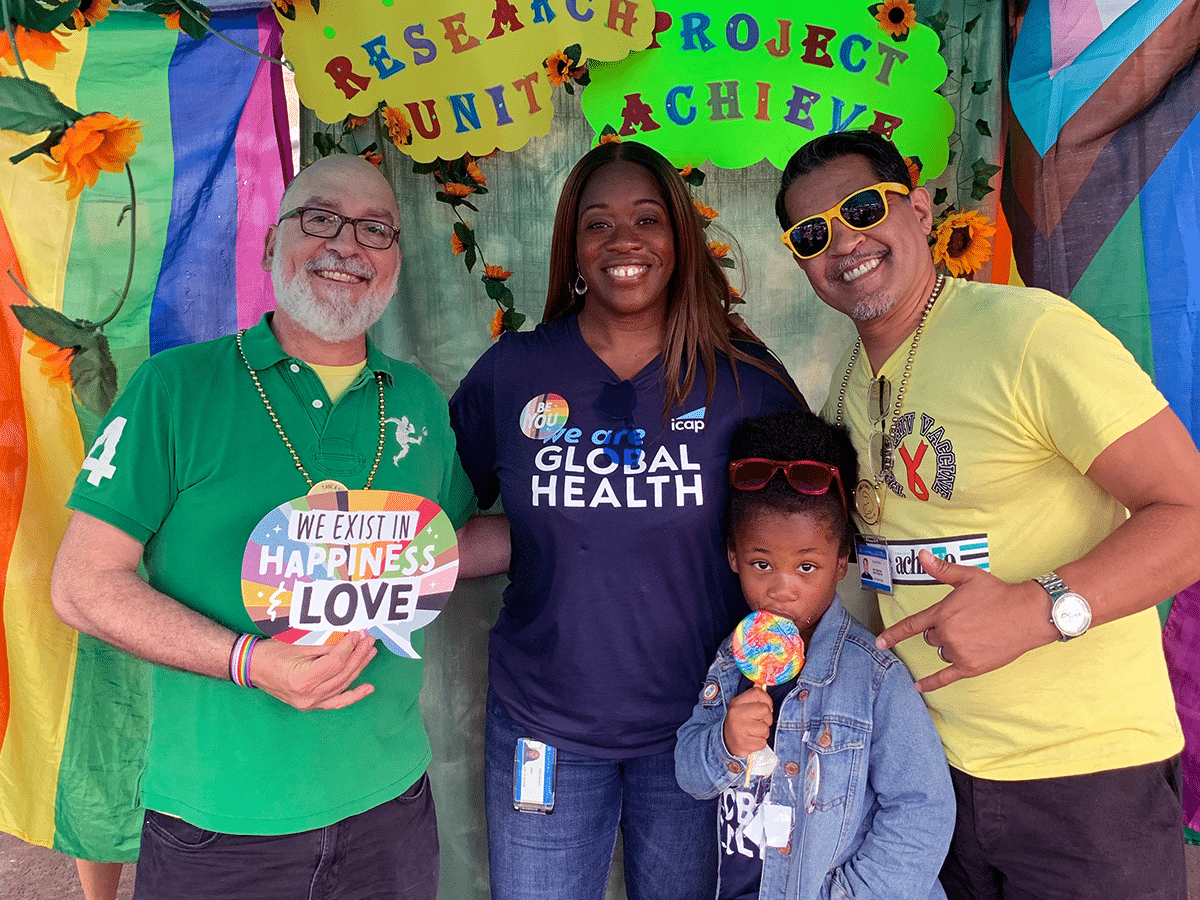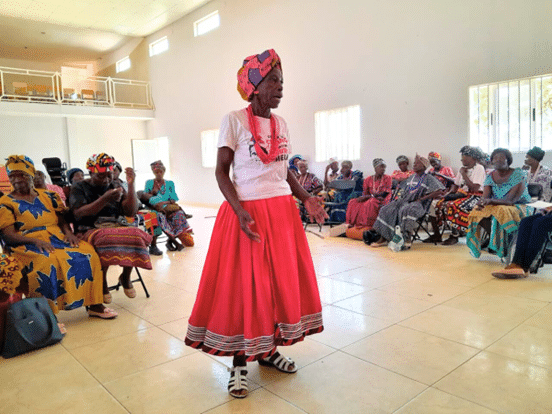As the Kenyan health system fights a surge in COVID-19 cases driven by the emergence of new and more contagious variants, ICAP is continuing to work with its longtime partner Jaramogi Oginga Odinga Teaching and Referral Hospital (JOOTRH) to safeguard the health of its staff and patients. Building on 15-years of partnership and collaboration, ICAP’s country office and cadre of technical experts around the world are providing tailored expertise to support the implementation integrated safety precautions and protocols including the establishment of mobile handwashing stations, the creation of well-ventilated waiting areas with adequate space to social distance, institutionalizing correct and consistent donning and doffing of health worker PPE, and the distribution of easy-to-understand communications materials with important health information for patients.
The ICAP-supported facility, which is Western Kenya’s largest public referral hospital, serves as a regional center of excellence, providing high quality HIV care and serving as a model center for the management of complex and advanced HIV disease and related conditions. The facility is one of a handful in the country that specializes in medically assisted therapy for people who inject drugs, who face heightened risk of HIV infection. Since 2015, ICAP has provided a plethora of support services to enhance service quality and patient outcomes throughout the hospital, developing innovative approaches to increase the efficiency of delivered health services.
Over the last two months, the facility has found itself in the spotlight as the surrounding county, Kisumu, is now the epicenter of the country’s COVID-19 pandemic and, worryingly, the first county in the nation to detect the highly contagious Delta variant. The variant was first detected in early May. While data on new infections is irregular, recent testing campaigns across Kisumu seem to indicate that more than 23 percent of people tested over a seven-day period in June were positive—more than double the national rate. As infections continue to spread beyond Kisumu’s borders and to the rest of the country, health providers in the country and beyond are watching the crisis with great concern.
One public health official increasingly being looked to for leadership and guidance during this unfolding crisis is the CEO of JOOTRH, George Rae. As the largest public hospital in the region, JOORTH is on the frontlines of the response and a trusted center of care. However, as noted in a recent spotlight in the New York Times, Rae is acutely aware of the challenges facing his facility. Throughout the crisis, Rae continues to advocate for the sustained implementations of critical infection prevention and control (IPC) measures needed to save lives. To the New York Times, he said “If Kisumu represents the African situation, then Kisumu requires a national plan to deal with this virus, to get everyone vaccinated, to get everybody to have the knowledge to prevent it, to get everybody with a mask and to get everybody away from crowding.” Before the COVID-19 pandemic and beyond, ICAP and its team of technical experts are providing critical support to fight back against the raging pandemic to protect the health and wellbeing of its staff and patients.
In March 2020, when only 83 COVID-19 cases had been identified in Kenya, ICAP and JOOTRH leadership took the proactive step of establishing a screening and triage center in anticipation of a coming surge, coupled with a health worker training program. ICAP experts in IPC rapidly spun up a series of tents and hand-washing stations where staff and incoming patients could be screened for COVID-19, travelling through triage checkpoints to and determine if the person should be admitted for further assessment. As cases continued to rise, ICAP developed a screening app for mobile devices, allowing health workers to more efficiently collect data on client demographics, travel history, and symptoms. By the end of 2020, nearly 120,000 people had passed through the screening center. Simultaneously, ICAP launched a web-based training program to provide JOORTH’s frontline health workers with critical training in COVID-19 case identification and management, triage care, IPC measures, and improved patient communication strategies. The hospital staff, with technical assistance from ICAP, recorded the training videos for each module, serving as trainers for their peers. Through this collaboration, COVID-19 training was rapidly disseminated to health care workers throughout the county as well as to university medical students. ICAP also helped set up a COVID-19 isolation ward inside the hospital; installed washing machines so that bedding, towels, and hospital gowns could be laundered within the ward; and established a kitchen so that patient and staff meals could be prepared on-site. ICAP also arranged for patient treatment in this new isolation unit, creating a system for remote care, installing CCTV, and setting up an Internet-based system so senior health care professionals could consult with patients face-to-face through tablets. “This rapid response [and] investment in equipment, staff training, and innovative technology solutions enabled clinicians to provide high quality care remotely as patients progressed from isolation to discharge [and] prevented a lot of mortality,” said Gregory Ganda, medical director of the government of Kisumu.
As Kenya battles its raging COVID-19 pandemic, ICAP continues to leverage its extensive expertise in large-scale public health interventions to enable partners like JOORTH – including ministries of health, research organizations, large multilaterals, health care providers, and patients – to navigate the ongoing state of emergency, with an eye on helping to save lives and eventually bringing this global health crisis under control.
A major global health organization that has been improving public health in countries around the world for over 15 years, ICAP works to transform the health of populations through innovation, science, and global collaboration. Based at Columbia University in New York City, where it is part of the Mailman School of Public Health, ICAP has projects in more than 30 countries, working side-by-side with ministries of health and local partners to confront some of the world’s toughest health challenges. Through meaningful research, tailored technical assistance, effective training and education programs, and rigorous surveillance to measure and evaluate the impact of public health interventions, ICAP aims to realize a global vision of healthy people, empowered communities, and thriving societies.








